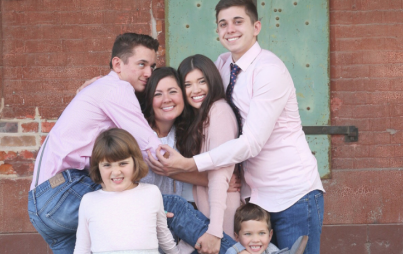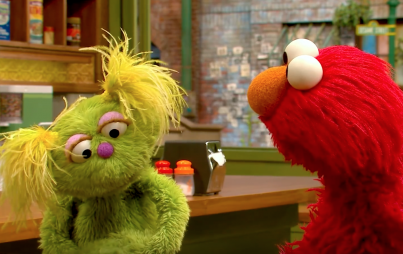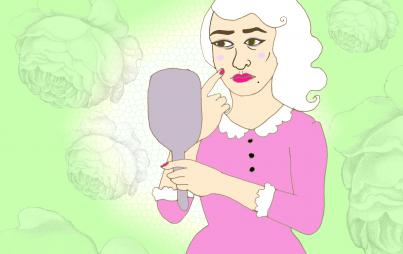
I Am The Crisis Friend.
The Crisis Friend, we all have one. Work is a disaster. Their car is broken. They are broke or in a perpetual argument with their spouse, or sick or tired, or in constant pain. Everything they touch becomes a problem. Even the good things in life are met with exasperation. You ask if you can help them, and the answer is always “No” or “I just don’t even know what you could do.”
They are the Crisis Friend.
I have been the Crisis Friend. I still sometimes am the Crisis Friend.
I have known my best friend, Staci, since I was 11. Our friendship is 90% her managing my various crises like she’s my mother and 10% me telling her she should have had more than one child because she’s so good at being my mother (it might be more like 80/20, but I don’t want to give myself too much credit for not being a walking tragedy).
Because we’ve been friends since we were 11, she knew my mother. She knew the Super Fun version of my mom that partied with the teenagers like she still was one of us. She also knew the addicted, mentally ill side of my mother that led to our eventual estrangement. She knew my first husband in high school (and my second husband in junior high). She knew young, damaged — but really good at disguising it — me. She knows current, often in crisis, me.
You Might Also Like: 14 Things ALL Anxious People Want Their Loved Ones To Know
A couple of weeks ago she was talking me down from my most recent crisis (probably spousal related), and it occurred to me (not for the first time) that our relationship is not infrequently about my most pressing drama. She totally has her emotional shit together most of the time. In the rare event that she loses her emotional shit, I can rally. Sometimes I show up with tough love. Sometimes I commiserate. Sometimes I just tell her I love her. I’m not particularly great at it; I know this.
This is our relationship dynamic. When I think about it, I quickly fall headlong into a self-loathing-spiral, from which I only emerge when Staci tells me that it’s okay that I always seem to need more than her. It’s kind of shitty (of me).
When the people around you are so unbelievably, so painfully, normal, it seems like you are a disaster area. And sometimes, you are.
My relationship with my husband is often the same. I am forever weeping or devastated or incensed by something; he is forever telling me it will be okay. To admit that I often smother his needs with my own — seemingly more important (but not) — is, frankly, embarrassing. Our relationship flows seamlessly from one crisis to another, either mine personally or a manufactured crisis in the otherwise quite stable foundation of our marriage.
It’s not that I love this dynamic, it’s just that I love this dynamic.
If you’re the Crisis Manager Friend in your relationships, that probably doesn’t make sense to you. But if you are the Crisis Friend, and you are honest with yourself, you’re possibly raising your metaphorical hand in solidarity.
I am not pathetic, though it sounds like it. I can pull myself up by the bootstraps at any time and get shit done without any emotional crumbling; I am definitely (usually) not pathetic. What I am is simply more comfortable in crisis. I operate better under duress, real or manufactured. The reason for this is both profound and painfully simple: crisis is how I was raised.
I don’t know what “normal” is — that is to be not in crisis — because I never knew normal, to begin with. My childhood was a series of abnormal events — hiding from the drunk (primarily) strangers in my house, nursing my mother’s hangovers with a trash can and a bottle of pink Pepto Bismol with a straw — punctuated by moments of great upheaval — moving, new schools, new step-fathers, and siblings. This (what I know now to be) abnormal was my “normal” for as many years as I can recall, which is not many.
I was born with a flair for the dramatic, one of the chromosomes inherited from my mother’s 23. This was a particularly apt gift, given the circumstances. As a small child, I employed that gift, layering it on top of my forced responsibility like a parfait of Shakespearean tragedy.
As Hamlet said (Act 3 Scene 1):
To be, or not to be: that is the question:
Whether 'tis nobler in the mind to suffer
The slings and arrows of outrageous fortune,
Or to take arms against a sea of troubles,
And by opposing end them? To die: to sleep;
No more; and by a sleep to say we end
The heart-ache and the thousand natural shocks
That flesh is heir to, 'tis a consummation
Devoutly to be wish'd. To die, to sleep;
To sleep: perchance to dream: ay, there's the rub
As Hamlet also says (Act 111 Scene 111 Line 87):
No.
I brought my penchant for Hamlet-esque theatrics with me into adulthood, combining it with my other inherited gift — mental illness. My family history, plus my childhood, plus my natural tendency for the dramatic, topped off with a combination of profound, crippling depression and a general feeling of hopelessness, is the perfect storm of Stage Five Crisis Friend.
The first step is admitting you have a problem.
I’ve written about my childhood — growing up in a household where the only certainty was that nothing would ever be certain. I’ve written about what it’s like to be a child of an alcoholic/addict, and I’ve heard back from people all over the world who email me with a collective, “I thought it was only me.”
It’s not only you.
It feels like it is. When the people around you are so unbelievably, so painfully, normal, it seems like you are a disaster area. And sometimes, you are. Your life is a self-imposed hurricane because you like to be in the eye of it, and you are an attention seeker because you were never attended to.
Being in a constant state of turmoil feels comfortable because you simply do not know what it feels like to experience a life that isn’t utter pandemonium.
There are lots of things that therapy can resolve but let me save you $180. If you are the Crisis Friend, and your humble beginnings as a human were chaos, you are like me. If you never resolved Erikson's first stage of childhood development, trust vs. mistrust, because there was no one you could trust, you are like me. If you don’t know how to be normal, how to not feel personally responsible for every problem on the face of the planet, from the argument you had with your husband over how to cut French bread to climate change, you are like me. If you are an overachiever to your own detriment, you are like me. If you are terrified of being alone while simultaneously sabotaging your interpersonal relationships while also being accused of being a Stage Five Clinger, you guessed it; you are like me. If you are fiercely independent while also desperately needing approval from any and all sources — yep, me.
And If you are the Crisis Manager Friend and thinking “wow that is totally ______,” you’re probably not wrong. Also, your Crisis Friend, if they know they are that person, is probably not proud of being the primary taker in the give and take of a relationship.
I'm trying not to be that person, but defaults are just that and habits are hard to break. As human beings, all we can do is continue to try to make sense of the senseless, including ourselves and the myriad of flaws inherent in us.







